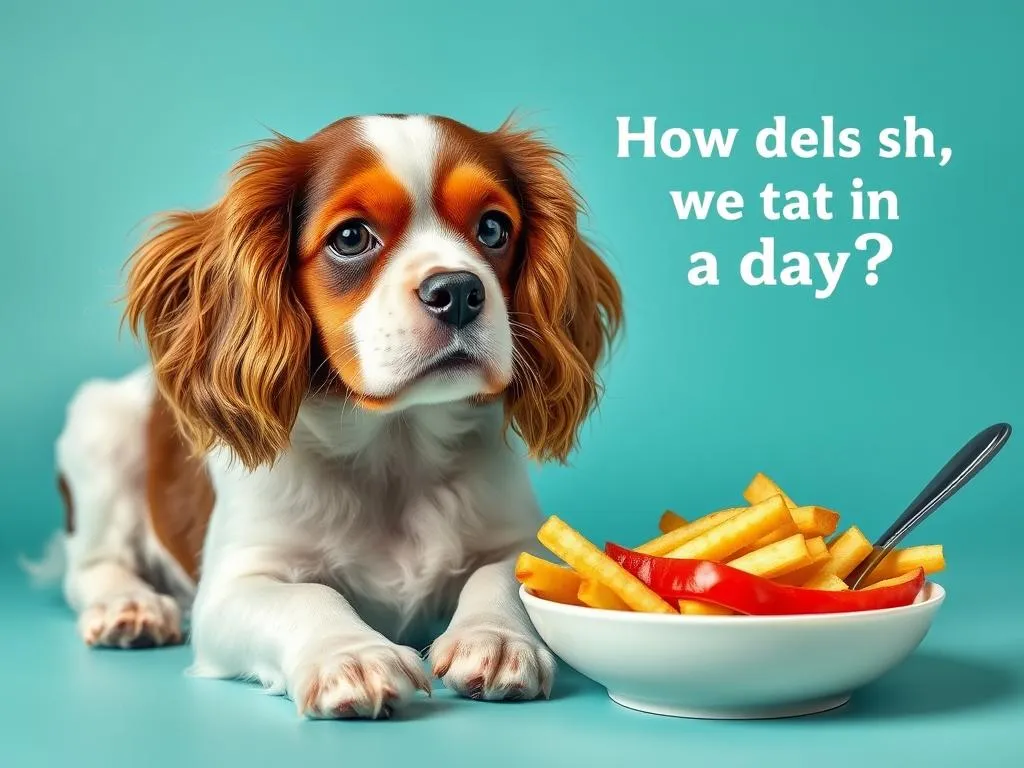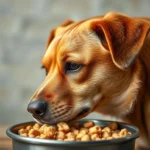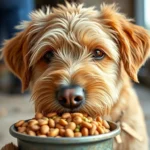
Introduction
Understanding dog nutrition is essential for maintaining your pet’s overall health and well-being. Proper nutrition influences everything from energy levels to longevity. One breed that requires special attention to dietary needs is the Cavalier King Charles Spaniel. Known for their friendly disposition and affectionate nature, these small dogs are prone to specific health issues that can be managed through a balanced diet.
This blog post will focus on the question: how much does a Cavalier King Charles Spaniel eat in a day? Understanding their dietary needs is crucial for ensuring they receive the right nutrients tailored to their breed characteristics and lifestyle.
Understanding Dog Nutrition
The Basics of Dog Nutrition
A dog’s diet should consist of essential nutrients, including:
- Proteins: Vital for growth, energy, and repair of body tissues.
- Fats: Important for energy and healthy skin and coat.
- Carbohydrates: Provide energy and support digestive health.
- Vitamins and Minerals: Essential for various bodily functions, including immune support and bone health.
Additionally, water is a critical component of your dog’s diet. It aids digestion, nutrient absorption, and overall bodily functions. Always ensure your Cavalier has access to fresh, clean water.
Nutritional Requirements Based on Life Stages
Nutritional needs vary significantly depending on a dog’s life stage:
- Puppies: Require a higher caloric intake to support their rapid growth and development.
- Adults: Need a balanced diet to maintain weight and energy levels.
- Seniors: May benefit from lower-calorie diets with added joint support due to decreased activity levels.
Moreover, a dog’s activity level can greatly influence its dietary needs. More active dogs require more calories, while less active dogs may need fewer.
Cavalier King Charles Spaniel Overview
Breed Characteristics
Cavalier King Charles Spaniels are typically small, weighing between 13 to 18 pounds. They are known for their affectionate nature and moderate energy levels, making them excellent companions. However, their activity requirements can vary, often needing regular walks and playtime to stay healthy and happy.
Common Health Concerns
This breed is prone to certain health issues, including:
- Heart Disease: Particularly mitral valve disease, which is common in older Cavaliers.
- Obesity: Due to their love for food and lower activity levels, Cavaliers can easily gain weight, leading to further health complications.
A balanced diet is essential in managing these health concerns, allowing Cavaliers to maintain a healthy weight and reduce the risk of diseases.
Daily Nutritional Needs of a Cavalier King Charles Spaniel
How Much Should a Cavalier King Charles Spaniel Eat?
The question of how much does a Cavalier King Charles Spaniel eat in a day depends on various factors, including their weight, age, and activity level. Generally, a Cavalier should consume about 30 calories per pound of body weight. For example, a 15-pound Cavalier would need approximately 450 calories per day.
Portion Sizes and Frequency of Meals
Typically, it is recommended to divide their daily caloric intake into two meals. This helps with digestion and prevents overeating. For instance, if your Cavalier requires 450 calories per day, you could feed them 225 calories in the morning and 225 calories in the evening.
Calculating Daily Food Intake
Calculating the right amount of food involves:
- Identifying Weight: Know your Cavalier’s current weight.
- Determining Caloric Needs: Use the guideline of 30 calories per pound.
- Choosing Food: Check the caloric density of the dog food you choose.
For instance, if a specific dry food has 350 calories per cup, your 15-pound Cavalier would require approximately 1.3 cups per day, divided into two meals.
Consulting with a veterinarian is always advisable for personalized recommendations based on your dog’s unique needs.
Factors Affecting Food Intake
A Cavalier’s dietary needs can be influenced by:
- Age: Puppies and seniors may require different formulations.
- Weight: Adjustments may be needed based on weight changes.
- Activity Level: More active dogs will need additional calories.
- Environmental Factors: Hot weather can lead to decreased appetite, while cold weather may increase the need for energy.
Choosing the Right Dog Food
Types of Dog Food
When selecting dog food, consider the following options:
- Dry Kibble: Convenient and helps maintain dental health.
- Wet Food: Higher moisture content, which can be beneficial for hydration.
- Raw Diets: Can be nutritious but require careful handling to avoid health risks.
- Homemade Options: Allows control over ingredients but needs to be well-balanced.
Each type has its pros and cons, and what works best for your Cavalier King Charles Spaniel may vary.
Reading Dog Food Labels
Understanding dog food labels is crucial for making informed decisions. Look for:
- Guaranteed Analysis: Check for the percentage of protein, fat, fiber, and moisture.
- Ingredient List: Ensure high-quality ingredients, with meat sources listed first. Avoid foods with fillers and artificial additives.
- Nutritional Adequacy Statement: The food should meet the AAFCO (Association of American Feed Control Officials) standards.
Recommended Brands and Formulations
Some highly-rated dog food brands suitable for Cavalier King Charles Spaniels include:
- Royal Canin Cavalier King Charles Spaniel: Tailored nutrition specific to the breed.
- Hill’s Science Diet: Offers options for weight management and heart health.
- Orijen: High-protein, grain-free options that use fresh ingredients.
Special dietary formulations, such as grain-free or high-protein diets, can also be beneficial, especially for those with specific health concerns.
Feeding Guidelines and Best Practices
Establishing a Feeding Routine
Creating a consistent feeding schedule is crucial for your dog’s health. Recommended practices include:
- Meal Frequency: Feeding twice a day helps regulate appetite and prevents bloat.
- Timing: Aim for the same times each day to establish a routine.
- Portion Control: Measure food portions to avoid overfeeding.
Treats and Snacks
While treats can be a delightful part of your dog’s day, they should not exceed 10% of their daily caloric intake. Opt for healthy, low-calorie treats, and be cautious with human foods, as some can be harmful to dogs (e.g., chocolate, grapes).
Monitoring Weight and Adjusting Diet
Regularly monitoring your Cavalier’s weight is essential. Signs of overfeeding may include:
- Difficulty feeling ribs.
- A noticeable increase in weight.
- Lethargy or decreased activity levels.
Conversely, signs of underfeeding could be:
- Visible ribs and spine.
- Lack of energy or playfulness.
If you notice any significant weight changes, consult your veterinarian for dietary adjustments.
Common Misconceptions About Dog Nutrition
Myths About Feeding Dogs
Many myths exist regarding dog nutrition. For instance, “dogs can eat anything” is a dangerous misconception. Dogs have specific dietary needs, and feeding them inappropriate foods can lead to serious health issues.
Another common myth is that table scraps are fine for dogs. While some human foods are safe, many are unhealthy or toxic. It’s crucial to stick to dog-specific treats and foods.
Understanding Dog Food Marketing
Dog food marketing can be misleading. Terms like “natural” or “premium” don’t always guarantee high-quality ingredients. Always read labels and prioritize nutritional content over marketing claims.
Conclusion
Tailoring nutrition to meet the specific needs of your Cavalier King Charles Spaniel is vital for their health and longevity. By understanding their dietary requirements and consulting with a veterinarian, you can ensure your pet receives the best nutrition possible. Proper nutrition plays a lifelong role in maintaining your dog’s health and happiness.
Monitoring your dog’s weight, adjusting their diet as needed, and choosing high-quality food can make a significant difference in their quality of life. Remember, every Cavalier is unique, and what works for one may not work for another, so always stay attentive to their individual needs.









